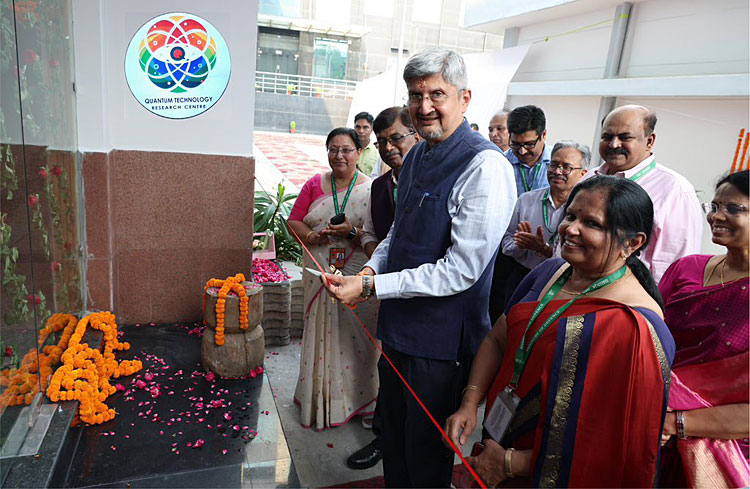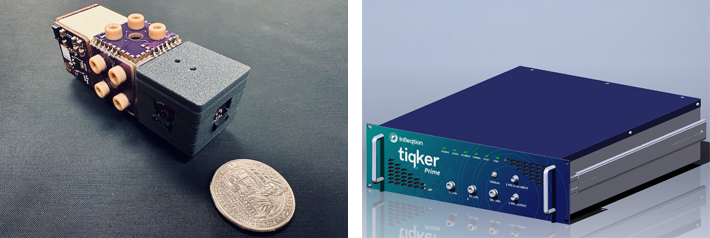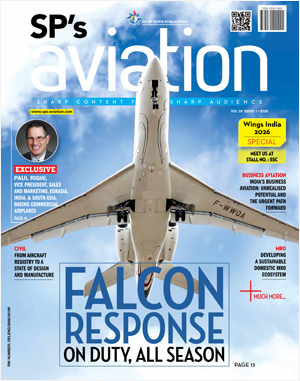INDIAN ARMED FORCES CHIEFS ON OUR RELENTLESS AND FOCUSED PUBLISHING EFFORTS

The insightful articles, inspiring narrations and analytical perspectives presented by the Editorial Team, establish an alluring connect with the reader. My compliments and best wishes to SP Guide Publications.

"Over the past 60 years, the growth of SP Guide Publications has mirrored the rising stature of Indian Navy. Its well-researched and informative magazines on Defence and Aerospace sector have served to shape an educated opinion of our military personnel, policy makers and the public alike. I wish SP's Publication team continued success, fair winds and following seas in all future endeavour!"

Since, its inception in 1964, SP Guide Publications has consistently demonstrated commitment to high-quality journalism in the aerospace and defence sectors, earning a well-deserved reputation as Asia's largest media house in this domain. I wish SP Guide Publications continued success in its pursuit of excellence.
- A leap in Indian aviation: Prime Minister Modi inaugurates Safran's Global MRO Hub in Hyderabad, Calls It a Milestone
- All about HAMMER Smart Precision Guided Weapon in India — “BEL-Safran Collaboration”
- India, Germany deepen defence ties as High Defence Committee charts ambitious plan
- True strategic autonomy will come only when our code is as indigenous as our hardware: Rajnath Singh
- EXCLUSIVE: Manish Kumar Jha speaks with Air Marshal Ashutosh Dixit, Chief of Integrated Defence Staff (CISC) at Headquarters, Integrated Defence Staff (IDS)
- Experts Speak: G20 Summit: A Sign of Global Fracture
Going GPS Free
The rising threat of GPS jamming has sparked urgent innovations in various technologies globally, promising a more secure and resilient future
 |
The Author is Former Director General of Information Systems and A Special Forces Veteran, Indian Army |

According to the media reports of June 9, 2025, quantum deep-tech startup 'QuBeats' has won the ADITI 2.0 Defence Challenge to develop an indigenous Quantum Positioning System (QPS) for the Indian Navy, securing a government grant worth ₹25 crore. The QuBeats grant is part of the Ministry of Defence (MoD) Atmanirbhar Defence Technology Initiative (ADITI) 2.0 programme, launched in October 2024. This initiative includes 19 challenges from the Armed Forces covering areas like AI, quantum tech, military communication, anti-drone systems and adaptive camouflage. The winners receive funding up to ₹25 crore through the iDEX (Innovations for Defence Excellence) platform.
On June 9, 2025, quantum deep-tech startup 'QuBeats' won the ADITI 2.0 Defence Challenge to develop an indigenous Quantum Positioning System (QPS) for the Indian Navy
"Winning the ADITI 2.0 Challenge is not just a validation of our unique technology approach, but a clarion call to India's quantum aspirations. QuBeats is here to build the future—and build it from India," a statement from the startup said. The QPS will enable naval ships and submarines to navigate accurately even in areas where the Global Positioning System (GPS) is unavailable or vulnerable to deception. The award will fund the development of high-precision quantum sensors that enable accurate navigation in environments where GPS is jammed, denied or spoofed. This aligns with the Indian Navy's efforts to develop alternative navigation systems and enhance its operational capabilities.
In an era dominated by satellite-based navigation like GPS, the risk of signal denial in the form of jamming and spoofing, particularly in contested military zones, has spurred global investment in alternative technologies. Quantum navigation uses principles of quantum mechanics to develop systems that are entirely self-reliant, needing no external satellite inputs. "The global market for such quantum systems is estimated to be around $10 billion," QuBeats said, adding that it is currently raising a seed funding round to accelerate its product development roadmap.
The QPS will enable naval ships and submarines to navigate accurately even in areas where the Global Positioning System (GPS) is unavailable or vulnerable to deception
The central focus of QuBeats is the development of a 'quantum magnetometer', an advanced sensor that detects subtle changes in the Earth's magnetic field. Since these magnetic patterns differ from place to place, accurately sensing them can help navigate by using the Earth itself as a natural map. According to the startup, "GPS denial is a real and growing threat, especially in contested zones. But the Earth itself offers a solution. It acts like a giant magnet and its magnetic waves can be used for positioning. Quantum sensors allow us to navigate using these natural signatures with unmatched precision, even when GPS is unavailable." The company says the quantum navigation suite under development also includes quantum gyroscopes, miniature atomic clocks, Rydberg radars and ultra-sensitive detection sensors; intended for strategic military applications like undersea warfare, long-range missile guidance and communication in contested environments. These technologies also have potential for civilian applications like deep-sea exploration, autonomous vehicles, and space navigation.

Amid escalating global tensions and technological advancements, the security and reliability of GPS signals have become critical concerns. The recent surge in GPS jamming incidents has highlighted vulnerabilities in aviation systems and beyond. Jamming signals can originate from military technologies, criminal enterprises, or low-cost devices available online. In conflict zones, jamming can degrade enemy weapons systems or disrupt drones and missiles. The vulnerability of GPS signals, especially at altitudes with minimal obstructions, underscores the need for more robust alternatives.
Quantum sensors allow us to navigate using these natural signatures with unmatched precision, even when GPS is unavailable
The rising threat of GPS jamming has sparked urgent innovation in atomic clock technology globally, promising a more secure and resilient future for global positioning systems. The development of portable atomic clocks aims to reduce reliance on satellite signals, making navigation systems less susceptible to interference. Britain's National Physical Laboratory (NPL) is advancing optical clock technology to enhance precision and reliability in timekeeping. Concurrently, American companies are innovating with technologies like magnetic navigation to provide alternative solutions to traditional GPS systems. Reducing dependence on external satellite signals is a potential solution against GPS spoofing, prompting the development of portable atomic clocks. These devices could reside on Earth or within navigation systems, eliminating the need for satellite timing. By accurately tracking speed and direction changes, navigation could occur without external signals, making jamming or spoofing ineffective.

Britain's NPL is advancing optical clocks, using lasers for higher precision than microwave-based cesium clocks. These next-generation clocks promise 100 times greater accuracy, potentially transforming navigation by reducing reliance on GPS. NPL aims to create a national network of interconnected atomic clocks, providing a secure, ultra-accurate timing reference for critical infrastructure. American like Infleqtion and SandboxAQ are developing innovative solutions. Infleqtion's "Tiqker" portable atomic clock system uses subatomic interactions for precise timekeeping, while SandboxAQ's "AQNav" technology leverages magnetic navigation to determine location without satellite signals. Australia's Q-CTRL is tackling the sensitivity issues of quantum sensors in noisy environments, partnering with Airbus, the Australian military, and the UK Navy to deploy these technologies. Collaboration with NASA and the US Geological Survey on gravity mapping projects may lead to more advanced geospatial data.
In May 2025, the DRDO inaugurated its first Quantum Technology Research Centre (QTRC) in Delhi to boost research and development in quantum computing, sensing and communication for defence applications
The potential for a new revolution in navigation is immense. As jamming and spoofing become more common, backup systems are crucial to prevent disastrous consequences. China has reportedly integrated quantum magnetometers into its naval operations to enhance submarine detection capabilities. State-owned enterprises like CETC (China Electronics Technology Group Corporation) and research arms of the People's Liberation Army (PLA) have been working on quantum sensors that can penetrate stealth technology by detecting minute magnetic field changes underwater. The US is investing in chip-scale atomic clocks, quantum accelerometers and gravity-based sensors, aimed at enhancing battlefield navigation without GPS reliance. Similarly, the UK is developing quantum inertial sensors for GPS-denied environments, particularly in maritime scenarios. According to a post on X: "in a move that has significant implications for both regional and global technological landscapes, Iran has made a decisive choice. It has shut down all PS services within its territory and officially activated the Chinese Beidou. Many more nations will follow. Elon's Starlink too may meet a dire fate if it comes in the crosshairs, which is likely".
In May 2025, the DRDO inaugurated its first Quantum Technology Research Centre (QTRC) in Delhi to boost research and development in quantum computing, sensing and communication for defence applications. A statement released by the MoD said, "The QTRC is expected to act as a national hub for defence-oriented quantum research, with collaborations expected from both the public and private sectors". Building up on the Quantum Positioning System (QPS) by QuBeats would provide the basis and impetus for India's quest for alternatives to the GPS.





